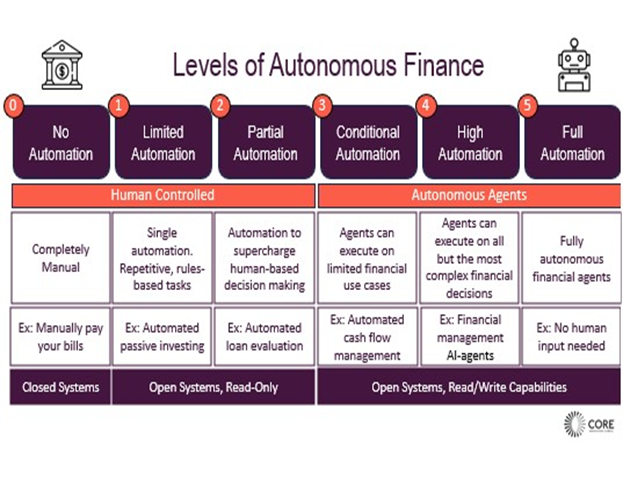The devastating impact of the recent LA fires has left tens of thousands of people grappling with profound loss and uncertainty. In moments like these, the challenges can feel overwhelming, with so many aspects of life uprooted. At Core, our hearts go out to everyone affected by this tragedy. As an LA-based fund, we have families, friends and communities that have been directly impacted. Both Arjan and Edwin evacuated their homes, scrambling to gather their keepsakes and valuables before driving to less exposed areas. Fortunately their homes were undamaged, but many others were not so fortunate.
As fintech investors, we’ve witnessed how financial stress can compound during crises. To support those who are navigating this difficult time and preparing to rebuild, we’ve compiled below some practical financial advice and best practices.
-
- Apply for relief on credit-related payments
- Apply for government grants and loans
- Reduce and defer property tax payments
- Take advantage of income tax filing extensions
- Inquire about utility provider deferral and relief programs
- Understand your insurance renewal rights
- Monitor and safeguard your credit
Please forward this to people you know who were impacted. If you are not impacted, and would like to help, consider donating to support low and moderate income survivors here (a program we trust).
1) Apply for relief on credit-related payments
- Notify creditors immediately: It’s important to be proactive and notify your banks, credit card companies, and other lenders about your being impacted by a FEMA-designated disaster, and understand what relief programs are available for you. Most importantly, you should contact your mortgage bank, as this is typically the largest credit obligation for many homeowners. Because lenders want to provide relief only to those in need, they will not proactively enroll you in their relief programs, even if you reside within a FEMA-disaster zone. The burden of notification and applying for relief falls on you.
- Understand your relief options: Most lenders are highly accommodating if you let them know about your situation, so it pays to be upfront. Many lenders offer: (i) Payment deferrals; (ii) forbearance programs, (iii) waived late fees, and (iv) reduced interest rates. Along those lines, Governor Newsom recently announced that the five largest mortgage lenders (Bank of America, Citi, JPMorgan Chase, U.S. Bank, and Wells Fargo) are offering impacted borrowers 90-day mortgage payment forbearance periods in addition to other wild-fire related relief. Moreover, the FDIC made a public statement encouraging banks to work with impacted borrowers, and has even gone so far as to offer regulatory relief to support banks in doing so.
- Document your conversations: You should be very clear about the length of the deferral and document the details of your conversation. You want to be sure to understand the arrangement and be able to follow up with the lender if they do not follow through with the agreed upon relief.
- Provide periodic updates: Some lenders only offer deferments for one month at a time but will extend them for a total of 3 or 6 months, or even longer, if necessary. However, you can only access these incremental deferments by keeping your lender apprised of your situation as it develops.
- Ensure you are reachable by mail: To avoid missing any critical credit (or other payment-related) physical communications, consider forwarding your mail to a secure location, renting a P.O. Box, or asking your local post office to hold your mail for later pick up. To forward your mail to a secure location, you can access the USPS change of address form here.
2) Apply for government grants and loans
FEMA (Federal Emergency Management Agency) Assistance
- Individual assistance: FEMA offers grants for temporary housing, repairs, and essential items like food, water, and medicine. For more information, you can watch this YouTube video and download the FEMA App.
- Where to apply: Visit DisasterAssistance.gov or call 1-800-621-3362.
SBA Loans
- Individual loans: To help you recover from a disaster (as a homeowner, renter, or personal property owner), you may apply to the SBA for a loan for up to $500,000 as a homeowner seeking to repair or replace a property or up to $100,000 as a renter seeking to replace personal property.
- Apply here: SBA Disaster Loans
3) Reduce and defer property tax payments
- Apply for a property tax reduction and deferral: California property tax relief is available if you file an Application for Reassessment: Property Damaged or Destroyed by Misfortune or Calamity (Form ADS-820) with the Assessor’s Office (relief@assessor.lacounty.gov). Filing this document may enable you to have your property taxes reduced and to defer and establish an installment plan for current year property taxes. For questions, you can contact the Assessor’s Office at (213) 974-8658.
- Carry over your home’s tax assessed value: Thanks to Proposition 50, you may be able to transfer your property’s base year value (which is used to calculate your annual property tax payment) to newly purchased replacement property. This is very helpful if you currently benefit from a low assessed value that you’d like to preserve. If you have owned your home for a number of years, the impact of being able to preserve your assessed value could be substantial.
4) Take advantage of income tax filing extensions
- Postpone your IRS tax filing: The IRS announced that tax filing deadlines will be extended to October 15th for disaster victims. You can contact the IRS at their disaster relief hotline (1-866-562-5227) to confirm that you are entitled to an extension. If you owe the IRS money from tax years 2023 and prior and are on a payment plan, you may be able to defer amounts due.
- Postpone your California tax filing: California also extended the deadline for 2024 income tax filings.
- Assess if you qualify for “casualty loss deductions”: Claim losses for damaged property may be deductible on your federal tax return as per this guidance provided on the IRS website.
5) Inquire about utility provider deferral and relief programs
- Contact your utility providers as you may be eligible for payment deferrals and, in some cases partial relief.
- Southern California Edison (SCE): 1-800-250-7339
- SoCalGas: 1-800-427-2200
- LADWP: 1-800-342-5397
6) Understand your insurance renewal rights
- Refer to your policy: Review your insurance policy to understand your insurer’s obligation to maintain and renew your coverage when you are subject to a FEMA-designated disaster, and the insurer’s ability to make any rate adjustments upon renewal. Your policy may potentially include a commitment from your insurer to maintain coverage during any rebuilding period,.
- Monitor California insurance protections: The California Insurance Commissioner issued a mandatory one-year moratorium on insurance companies non-renewing policyholders within zip codes designated here.
7) Monitor and safeguard your credit
- Inform credit bureaus: Contact Experian (888-397-3742), Equifax (888-378-4329) and TransUnion (888-909-8872) to request that they add a comment to your credit file indicating that you are in a FEMA-designed disaster area. Having a “disaster flag” in your credit file may mask certain negative credit occurrences during the immediate aftermath of the fires and be beneficial when you apply for credit in the future.
- Consider placing a security freeze on your credit. For a variety of reasons, identity theft often increases significantly following a natural disaster. For that reason, you may want to consider freezing your credit. You can do this by accessing the following linked forms for each of the credit bureaus: Equifax, Experion, and TransUnion. Note that you will need to unfreeze your credit at a later date in order to apply for new loans.
- Subscribe to credit monitoring service. Check your credit reports for any errors, missed payments, or unrecognized activity. To track your credit, you can use platforms like MyFICO or Credit Karma, or receive free weekly copies of your credit reports (to which you are entitled by law) through AnnualCreditReport.com.
Recovering from a natural disaster is a deeply personal journey, and one filled with unexpected challenges. Thankfully, there are programs, organizations, and people who care deeply and are ready to support you through this process. At Core, we believe that rebuilding after natural disasters is not solely an individual journey, it is also a shared one. We welcome your feedback on this blog and ideas about other relevant topics that would be helpful to discuss as we seek to rebuild our community together.




